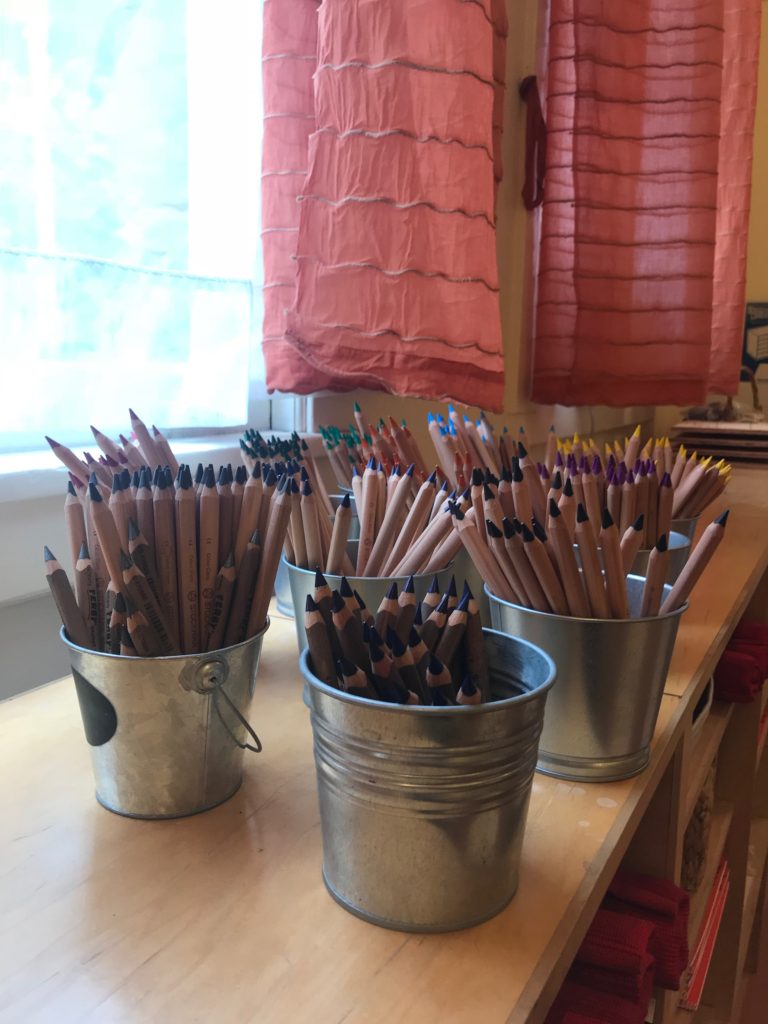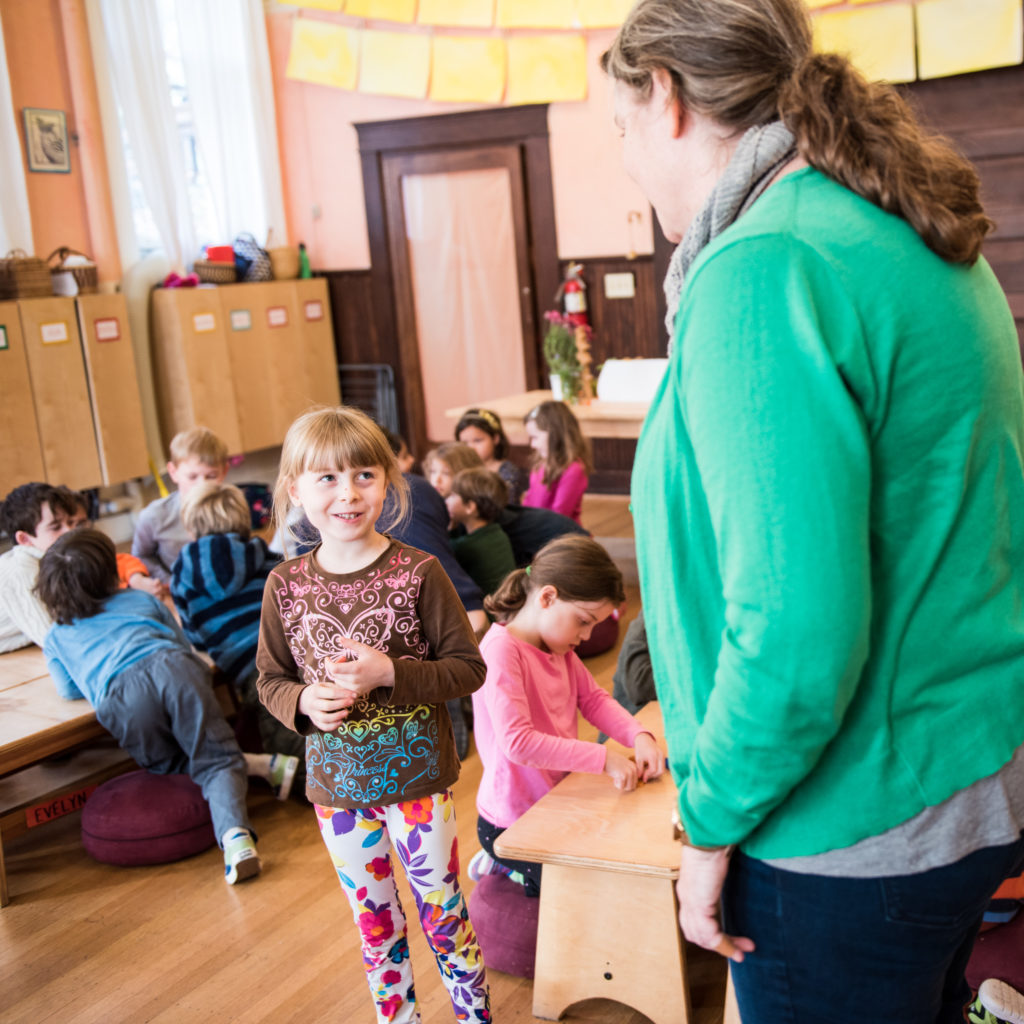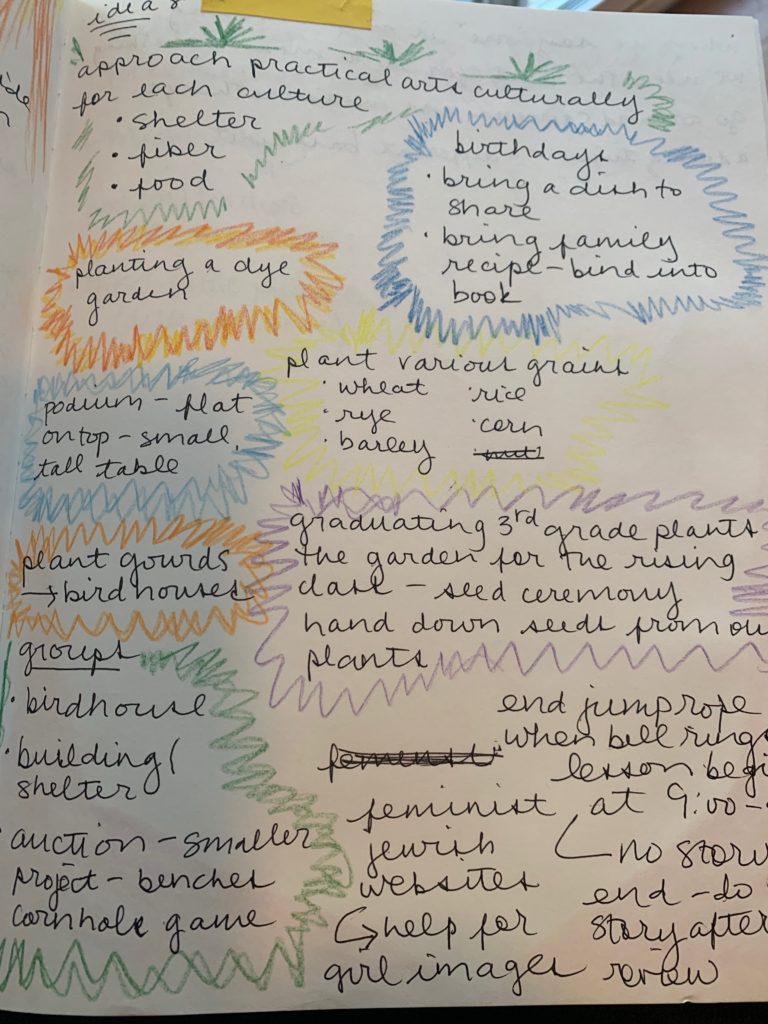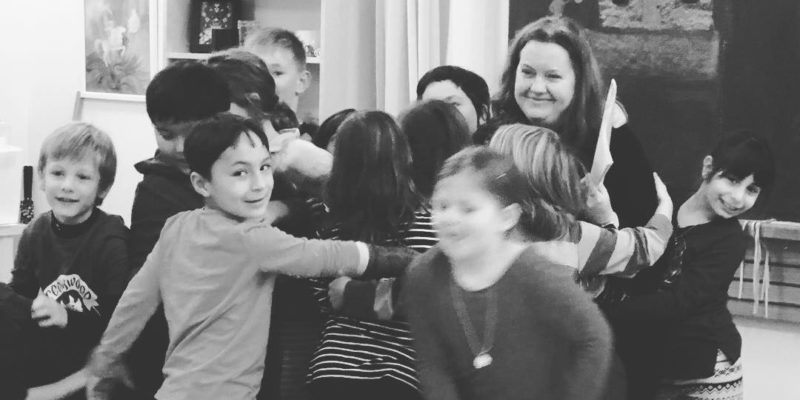Can we get real for a minute here?
Every now and then, thankfully not very often, I sit down and think about everything that happens in my teaching life and I realize how downright difficult this work is.
Now, I try not to get stuck in negativity, and really, as I see it, difficult work is not negative. Actually, hard work is a very good thing. And hopefully by the end of this post we’ll all come to the conclusion that this job is just as much blessed and beautiful as it is dirty and difficult.
But every now and then I think it is healthy to sit down and get real about why I (and other Waldorf teachers) may be feeling stressed and overworked.
The whole topic reminds me of the time I went in for a physical during my 3rd year of teaching. The doctor asked me if I’d had any stressful life events in the past year. Had I moved, gotten divorced, changed jobs, lost a loved one? I answered no to all of those questions, but I wanted to tell him that this was no indication of my stress level. My life hadn’t been impacted by any of those big upheavals, but my daily life was certainly stressful. I wanted to say, “No big life events, but I am a Waldorf teacher!”

This work is stressful and it takes a lot out of us, so at risk of creating a cautionary tale for aspiring would-be Waldorf teachers, here are some of the things that make this work so difficult.
We’re teachers.
Everyone always talks about how hard teachers work and how little they are paid for it. And it’s true. All of those issues that plague our public school counterparts, also impact our work. Our work just isn’t held in high regard in our culture (at least here in the States) and we’re at the bottom of the professional totem pole.
And there are plenty of people out there who recognize that teachers work hard and aren’t compensated for it. Whenever I tell anyone that I’m a teacher, they smile with a look of appreciation. And I’m grateful for it, but the values that our culture expresses through monetary compensation haven’t yet caught up to the general consensus that teachers are worthy of our respect.
Interestingly, I think there is a dynamic that contributes to the ongoing devaluing of teachers’ work. When people talk about the countless hours that teachers devote to their work, their commitment to their students and the personal sacrifice that they make in the service of their work, they always say, “Teachers don’t do it for the money.”

And, yes, it’s true that if money was our number one concern, we should have chosen another line of work. But commenting about teachers’ dedication and their little regard for monetary compensation almost sets up an expectation that teachers NOT worry about money. In a sense, our culture doesn’t allow us to care about the money.
I mean, think about it, if you heard about a teacher directly connecting her work with her students to her monetary compensation, you would have some serious concerns. But these same work/money comparisons are made in the professional world all the time.
- “I’ll only teach that challenging student if I get paid more.” (In another industry it would be, “I’ll charge more for taking on that difficult client.”)
- “My students have learned more/are better behaved/performed better on the standardized test so I deserve an annual bonus.” (Other professionals regularly receive bonuses for high achievement.)
- “I receive fewer parent complaints, so I should receive more pay.” (Again, greater achievement = more pay in most professions.)
Now, I’m not saying that teachers should step up and say these things. In fact every one of those statements above makes me feel pretty uncomfortable! In NO WAY am I suggesting that a teacher’s pay should be tied to performance. It brings up all kinds of awkwardness (imagine having your students’ success determine your pay rate!) But because there isn’t an acceptable conversation for teachers to engage in about pay, the only one that exists is that “teachers aren’t paid enough” and “they don’t do it for the money.” There truly is not a socially acceptable way for us to advocate for greater respect in the professional world and greater compensation.
Well, I’ll tell you right now, we do it for the money. I love my students, but if I wasn’t paid, I would not be in that classroom every day. And for many teachers, it is just a matter of time before they find something that pays better and requires less effort.
We plan new curriculum every year.
Here is something unique to the Waldorf grades teacher experience. Imagine working hard at something for a full year, finally feeling like you’ve figured it out and then moving on to something new. You may have had ideas about how you would improve — how that lesson could be tweaked so everyone in the room will understand. But, you won’t get that chance (unless you cycle back and teach that grade again in 8 years.) Instead, you have a whole new curriculum to figure out the next year. And at the end of that year you’ll probably have that one figured out too. That is the plight of the Waldorf grades teacher.

But imagine showing up every day to a job where it is expected that you are an authority — a teacher — in something that you are just learning yourself. We get really good at learning new things, but that newness is stressful. Remember how “starting a new job” is on the list of big stress-inducing life upheavals? The most stressful thing about starting a new job is the newness — adjusting to doing something new every day and the incredibly steep learning curve. It’s no wonder Waldorf teachers feel stressed out.
Now, of course, this drawback comes with huge positives. The curriculum is fresh and alive every year and we get a huge boost of interest in our work as we learn a new year’s curriculum. Additionally, we really appreciate that the Waldorf grades teacher is teaching the child not the curriculum. We become experts in the students who are sitting in our classroom, rather than in the content we’re teaching.
So, it’s all with good reason. But it takes a LOT of work. Every summer I create the overview of the year (which, if you’re looking for some support with that, you might want to check out my Waldorf Basics guides) and then as the year unfolds I create brand new lesson plans every month, week, and day.
And, yes, I love it. But, yes, it’s hard.
We become intimately involved in the lives of our students.
Here’s another one of those benefit/drawback analyses. We benefit immensely by creating strong connections with our class families. If you, like many Waldorf teachers, subscribe to the belief that this life we’re living is all about creating connections with and impacting the lives of other human beings, then there is nothing better than the work of a Waldorf teacher.

As my students and their families experience big life-changing, growth events, I go right along for the ride with them. And the result is that I have grown through the experiences as well. I can’t even comprehend the amount of growth I have personally experienced as a result of this work. I’ve had challenges to work through with families, difficulties with students and I’ve been pushed to build understanding with colleagues. There is a whole lot of human experience going on here, and I would not be the person I am today without it.
One of the most beautiful results of this work is that because I’ve gone along on so many of those rides through divorces, losses of loved ones and family difficulties, I have learned some things about how to navigate them. Successfully helping families work through those challenges is one of the most rewarding aspects of my work. But all of that strife weighs heavily. And whether you have 10 students or 30 students, carrying the burden for all of those families is stressful. Navigating challenges and growing from them is hard work.
As our students show us every day, growth is not easy! It is only through facing challenges that we develop as human beings. And sometimes, you know what? I don’t want to do it. Um, thank you, no growth for me today. Let’s have some smooth sailing instead.
Lately, I’ve been having more of those days than I would like. Maybe it’s because my students are facing the 9-year-change and they’re feeling pretty uncertain about things. Maybe it’s because my own children are just about out of the house and it feels like it’s time for life to ease up a bit. Or maybe I’m just getting older and feeling ready to reap the benefits of all of those years of growth and development.
I mean, I still love this work. In the end, the growth, connection and joy I experience every day outweighs the challenges. It must, I’ve stuck with it for 14 years!
But sometimes I just need to groan and fret. But then I go to work and remember how much I love my students and how much FUN teaching really is. (Here are some of the sweetest birthday drawings they made for me while I was away this week, as evidence of how lovely this work truly is.)











If you’re reading this post (and made it this far — thank you), it means I resisted the overwhelming urge to hit the delete key. Too real? Too negative? Let me know that hitting the publish button was the right decision by leaving a comment below.




Thank you! You eloquently said everything I have felt for the last several years! I just told someone last night “I’m getting old and everyone expects me to fly (three fold walking) across the halls like I did 21years ago, I just can’t anymore!”❤️
Beautifully said!
Yes, yes, yes and yes!!! Never delete the truth. It is so important for people to hear. I was a classroom teacher in a Waldorf (inspired) program for 10 years. I just retired in June. I miss it, but not the stress. Eventually, I don’t know when, teachers will get paid what they deserve. Until then, keep doing what you love, breathe deeply through the tough parts and take all the hidden benefits you describe as part of your emotional paycheck. Blessings
You nailed it, Meredith! Thank you for speaking your truth.
This is the truth! Thanks a lot!
Feeling the same this week. Wednesday in frustration, I said aloud to a senior staff person, “This job is hard enough without people making it harder!” The outburst was a result of a broken paper cutter, but it was the drop that had the cup run over.
Here in South America Waldorf teachers feel the same. There is so much work to do every day throughout the year… And we feel the stress of not earning enough to make ends meet at the end of the month.